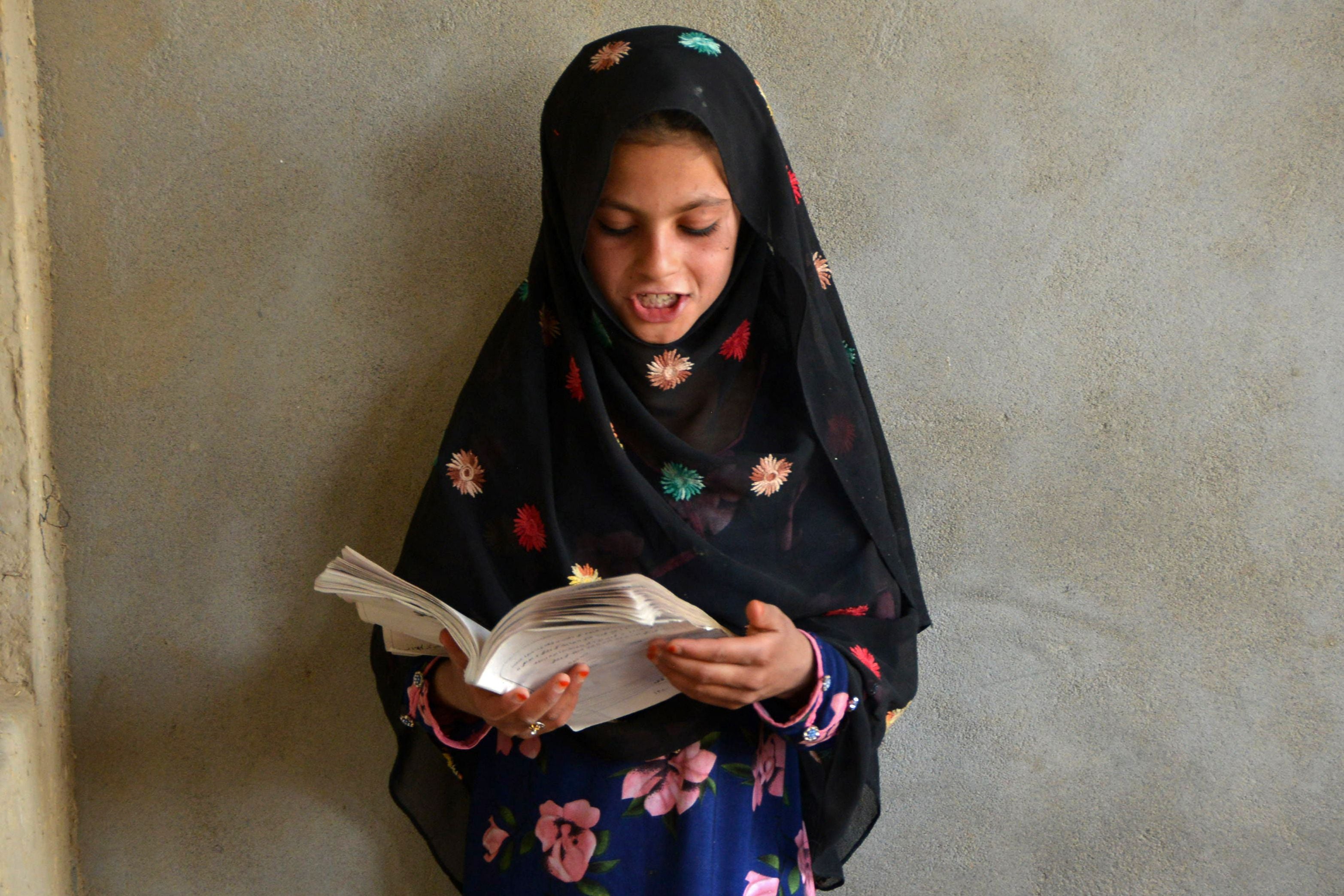Taliban calls for major gathering of scholars which could address Afghan school ban for girls
The meeting will be held in Kabul and could last three days
Your support helps us to tell the story
From reproductive rights to climate change to Big Tech, The Independent is on the ground when the story is developing. Whether it's investigating the financials of Elon Musk's pro-Trump PAC or producing our latest documentary, 'The A Word', which shines a light on the American women fighting for reproductive rights, we know how important it is to parse out the facts from the messaging.
At such a critical moment in US history, we need reporters on the ground. Your donation allows us to keep sending journalists to speak to both sides of the story.
The Independent is trusted by Americans across the entire political spectrum. And unlike many other quality news outlets, we choose not to lock Americans out of our reporting and analysis with paywalls. We believe quality journalism should be available to everyone, paid for by those who can afford it.
Your support makes all the difference.A major gathering of Afghan tribal elders and religious scholars which begins today could discuss the Taliban’s decision to bar girls above the age of 12 from going to school.
Afghan commentators are describing the meeting to be held at the Kabul Polytechnic University campus as a loya jirga, or grand assembly, such as the meeting of dignitaries in 2002 that shaped the country’s future after the United States helped rebels topple the previous Taliban regime.
But the Taliban has not yet used that term, which refers to an inclusive centuries-old institution, instead describing it as a “big meeting” of religious scholars to discuss a number of unspecified national issues. Afghan media have described a meeting of hundreds of mostly pro-Taliban figures over three days beginning Wednesday.
“A large number of religious scholars from the leadership of the Islamic Emirate insisted on holding a gathering,” the Taliban’s spokesperson Zabiullah Mujahid said in a tweet.
“The leadership of the Islamic Emirate also accepted their request and a large gathering of scholars will be held in Kabul soon. From each province and district, a large number of religious scholars and tribal leaders will participate.”
The Taliban, a network of ultra-conservative Sunni Muslim and mostly ethnic Pashtun armed groups, seized control of Afghanistan last August in a stunning offensive as US-led forces withdrew and ended a 20-year mission to stabilise the war-ravaged nation.
They have faced international isolation that has only increased after the group began imposing harsh measures against girls seeking to attend school and women seeking to work. The so-called Islamic Emirate of Afghanistan is also under fire for failing to allow members from the country’s non-Pashtun plurality – including ethnic Tajiks, Hazaras and Uzbeks – into positions of power.
Some have speculated that the gathering could be a way to draw members of other communities into the fold and reverse decisions on girls’ education that have made the Taliban a global pariah. To date, not a single country has formally recognised the Kabul government.
“It is possible that in this meeting, the decision about the reopening of girls’ schools may be made – whether to allow girls to go to the school or not,” Ahmad Munib Rasa, a political analyst, told Afghanistan’s Tolo News.
The country’s isolation has exacerbated major food and health crises that followed the withdrawal of international forces last year. A 6.1 magnitude earthquake that struck Paktika province on 22 June killed more than 1,000 people and highlighted the intense desperation of the population.
“Immediate needs are lifesaving: water, shelter, food and access to emergency health care,” said a report by the International Organisation for Migration, a United Nations agency. “These needs are intensified as the area was already a hot spot for food insecurity and water borne disease prior to the earthquake.”
Western diplomats have been saying for months that the Taliban had such a meeting in the works. Hamid Karzai, a former president, has been calling for a loya jirga since April.
Still many see the gathering as little more than an attempt by the Taliban to present a show of unity and enforce discipline in the face of Western pressure. Experts speculate that the meeting, while appearing to accede to public pressure, may end up being little more than an attempt by the Taliban to consolidate control over its own disparate forces, which often operate semi-autonomously.
“It seems quite clear that the criteria for attendees is that you don’t get to attend unless you’re a trusted Taliban supporter,” Heather Barr, Afghanistan researcher for Human Rights Watch, said in an interview.

“People coming are those who have been supportive of the jihad,” she said. “They want to get everyone in one room and explain to them how things are going to be from here on out.”
Maintaining unity appears to be the Taliban’s top objective. Ms Barr said she doubted the group would renege on its controversial 23 March decision to extend its ban on education for teenage girls if only for the internal divisions it could aggravate.
“I will be really surprised if there is a reversal because there are some real heavy hitters opposed to schools opening for girls,” she said. “The Taliban has been good at avoiding fragmentation. The way they avoid fragmentation is not moving ahead without consensus.”

Join our commenting forum
Join thought-provoking conversations, follow other Independent readers and see their replies
Comments